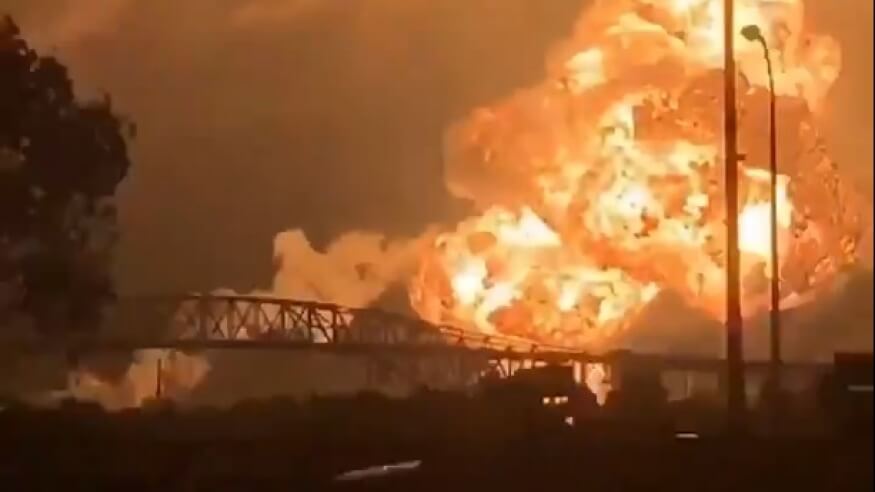Residents are concerned about what lurks under and around the Philadelphia Energy Solutions (PES) refinery after a massive blaze last June.
PES has officially been sold to Hilco Redevelopment Partners. The U.S. Bankruptcy Court approved the sale of the refinery on Wednesday.
Hilco Redevelopment Partners is planning on replacing the refinery with a mixed-use development, which has residents concerned about other types of pollution that could be within the two-square-mile property.
Inquirer.com reports that since the property opened, there have been a slew of different chemicals that have been processed, stored and shipped on the grounds — some of which can be dangerous to people within the area.
Documents provided by the Environmental Integrity Project reported that benzene has been found in the area, and it exceeds the levels set by the state for a non-residential property. The CDC reports that “benzene works by causing cells not to work correctly. For example, it can cause bone marrow not to produce enough red blood cells, which can lead to anemia. Also, it can damage the immune system by changing blood levels of antibodies and causing the loss of white blood cells.”
It can cause the most damage to blood; however, some long term exposures can also cause irregular menstrual cycles in women, decreasing the size of ovaries in women and cancer.
Department of Environmental Protection and Evergreen Resources Group has a cleanup plan in mind for the area, which is being taken care of by Sunoco. Sunoco owned the property until 2012 when PES purchased it.
It has been reported that the area was polluted before, during, and after Sunoco’s years of owning the property. Since the refinery is over 150 years old, it is difficult to determine who is responsible for specific chemicals.
Documents show that over a dozen chemical compounds have spilled, leaked or found their way into groundwater or aquifers in the area — most of which violate state laws on safety standards.
Sunoco is now a subsidiary of Energy Transfer LP. They put the property into a state program for cleanup in 2006, according to Inquirer.com. The cleanup plan is still being reviewed and only applies for the era that Sunoco owned the property.
However, some remediation has taken place over the years. It was reported that wells helped recover gallons of oil, gas and other petroleum products from the water beneath the ground. Documents show that the petroleum processing and lead-lined tanks and pipes caused a lot of damage.
In the past, some of the chemical compounds flowed into the city’s sewer system, which ultimately flows into the Delaware River. Many concerns about the rivers started in the 1990s. Some contaminants have reached the water, according to Elizabeth Rementer of the Pennsylvania Department of Environmental Protection, who spoke to The Inquirer.
The aquifer beneath the property is not used for Philly’s drinking water. However, a section of the Potomac-Raritan-Magothyaquifer runs underneath the property and under the Delaware River, does draw some drinking water.
Sunoco said the contamination for the water has been dubbed “minor” and it could not reach rivers. It was reported that there are no residential or agricultural wells within a mile of the property, so it doesn’t pose a risk.
It has been reported that the land isn’t clean enough for people to live on, but it is okay for industrial purposes, according to the state.
Sunoco was not fined for any violations on the complex’s property because it is one of the many companies that has contributed to this pollution over the years.
Hilco has stated that they have their own cleanup plan in mind. At this time, it is not clear how or if they are planning on working with Sunoco.
Sunoco told Inquirer.com that they are still committed to cleaning up the site.
“We understand that this effort is important to those who live and work in the area, and we remain committed to fulfilling the agreements made between Sunoco/Evergreen and the Pennsylvania Department of Environmental Protection and the EPA,” said Vicki Granado, a spokesperson for parent company Energy Transfer Partners told Inquirer.com
Granado added, “Our cleanup efforts have been ongoing for decades and will continue after the sale of the facility.”





























